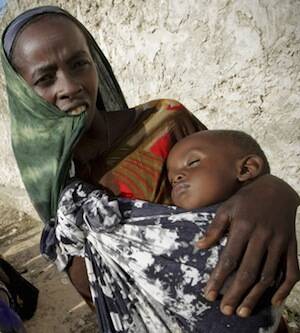In just over two decades Niger has cut its rate of infant mortality in half, highlighting the benefits of universal free health care for children and pregnant women. Since the mid-1990s, the Niger government has been committed to universal access to basic health care for women and children, focusing on measures to reduce deaths from malaria, diarrhea and measles. That effort has paid off. According to a study in the British medical journal The Lancet, Niger improved from 226 deaths per 1,000 live births in 1998 to 128 deaths in 2009. In addition, after receiving a better diet with vitamin A supplements, regular treatment for illnesses and vaccinations, the number of children aged 24 to 35 months with rickets and growth disorders was also reduced. Much work remains, however. According to Unicef, in 2012 Niger recorded the highest number of malnourished children in the Sahel region. More than 330,000 children under 5 years of age are at risk of malnutrition. In the region, heavy drought and rising food prices have left more than 18 million people suffering from hunger.
Infant Mortality Down?
Show Comments (
)
Comments are automatically closed two weeks after an article's initial publication. See our comments policy for more.
The latest from america
July 16 marks 80 years since the first atomic bomb was detonated. The specter of nuclear annihilation has been with us ever since.
The first time we see the titular hero of James Gunn’s new film “Superman,” he doesn’t descend from the heavens. He plummets.
If we imagine ourselves as satisfying a God who will “give us” things only if we do the “right things,” then our relationship with God becomes less a friendship and more a chore.
For 13 years, Josep Lluís Iriberri, S.J. has guided pilgrims along the same trail St. Ignatius walked over 500 years ago.








